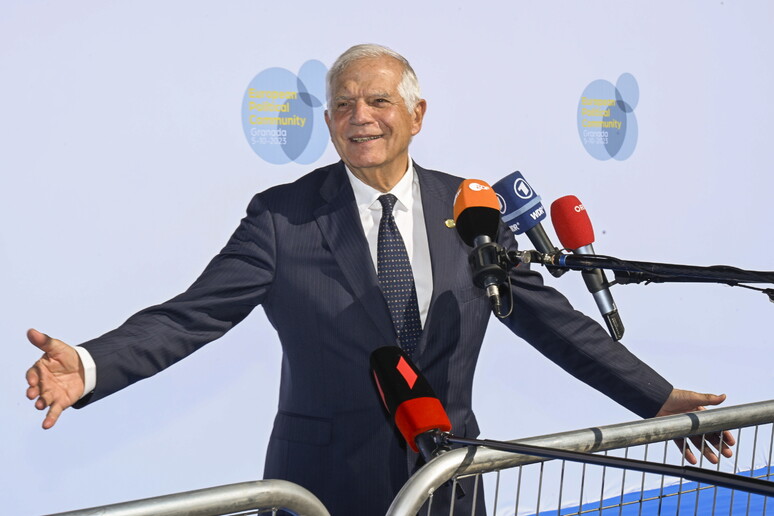European Union High Representative for
Foreign Affairs Josep Borrell said on Friday he is "ready to
consider" the option of launching an anti-trafficking naval
mission as part of efforts to combat irregular migration to the
bloc.
"We need to think about external border control not only in the
Mediterranean but also in the Sahel," said Borrell, arriving at
the third meeting of the European Political Community in
Granada, Spain.
"It is a difficult task, but I am ready to consider this
option," he continued.
"People flee because they have to, or for better opportunities,
and the EU must have a common position" on the issue, insisted
Borrell.
The high representative said he supported the idea of using "our
Common Security and Defence Policy naval or land-based missions
to combat traffickers".
"However, in order to do this, agreement from Tunisia is
required," added Borrell, citing the EUNAVFOR MED IRINI mission
launched in March 2020 to enfore the UN arms embargo against
Libya.
"If we now have to move to another territory, it can be done,
but we definitely need the agreement of that country," Borrell
explained, also opening to the possibility of sending EU staff
to the southern borders of North African countries to advise
local authorities there.
There are two ways to work with Tunisia, Borrell said.
"One is the Memorandum and the other is the EU-Tunisia
Association Council, which I chair.
"I will convene a meeting of the Council before the end of the
year, this is the place where we discuss with Tunisia how to
cooperate on everything, including migration," he added.
Borrell's comments came after Tunisian President Kais Saied on
Tuesday rejected 60 million euro in budget support from the EU
unlinked to the EU-Tunisia memorandum of understanding signed in
July, describing the disbursement as "charity" on grounds it
"contradicts the memorandum of understanding signed in Tunis in
the spirit that prevailed at the Rome conference last July".
The reference is to an international conference on migration and
development organised by the Italian government in Rome to
launch a "dialogue of equals" between countries on both shores
of the Mediterranean and further afield.
"Tunisia, which accepts cooperation, does not accept anything
resembling charity or favour, because our country and our people
do not want sympathy and do not accept it when it is without
respect," said Saied, according to a press release.
The president reiterated his position again on Friday during a
meeting with Foreign Minister Nabil Ammar at the presidential
palace.
"Tunisia stands firm in its sovereignty and will not give in to
pressure because state sovereignty takes precedence over any
other consideration," said Saied, according to a press release.
"Our country will deal with its partners on an equal footing
within a framework of mutual respect," he added.
ALL RIGHTS RESERVED © Copyright ANSA











